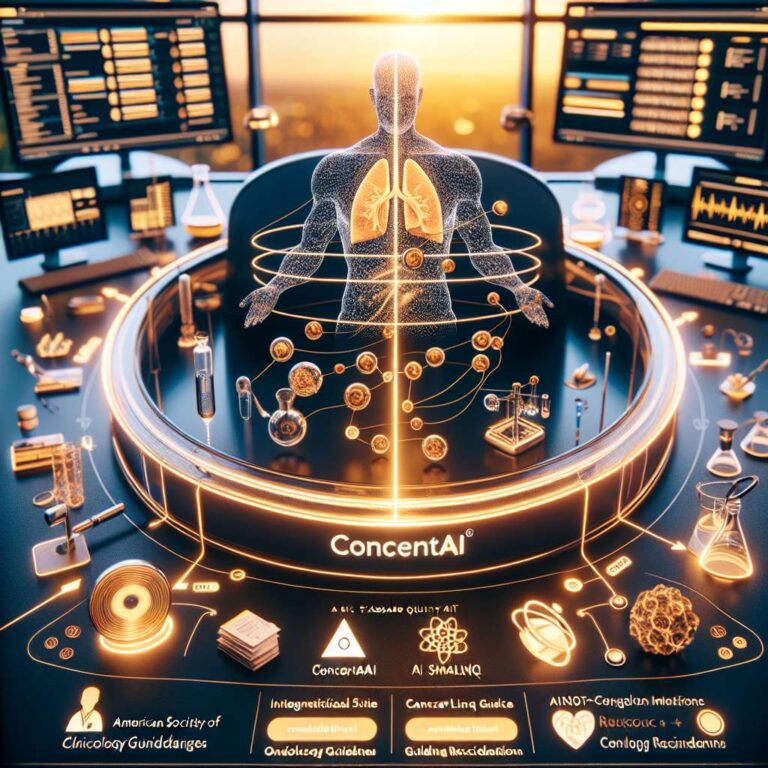ConcertAI announced it has integrated American Society of Clinical Oncology guidelines into its CARAai platform for both the Precision Suite and CancerLinQ SmartLinQ solutions. The rollout will automatically provide guideline-concordant care recommendations to oncologists within the CancerLinQ network and enable biopharma researchers to evaluate concordance and outcomes using the Precision Suite’s low-latency, high-recency data. Within SmartLinQ, the newly licensed content will sit alongside existing features that help clinicians consider a full range of treatment options for optimized patient outcomes.
The move follows ASCO’s and ConcertAI’s December 2023 announcement regarding the acquisition of CancerLinQ and the continuation of network operations under ConcertAI. Over the past year and a half, ConcertAI has advanced SmartLinQ for QOPI applications and added proactive alerts for potentially beneficial diagnostics and newly approved therapeutics. SmartLinQ operates directly within Epic and other electronic medical record workflows. The company said ASCO guidelines will augment SmartLinQ by June 15, ensuring network practices have access to the informational resource in their day-to-day care decisions.
On May 30, ConcertAI unveiled its oncology-focused Precision Suite of generative and agentic Artificial Intelligence solutions for analytics, inference, and clinical trial design and optimization. ASCO guidelines will be available in these research products by June 30, enabling assessments of guideline-concordant care across varied settings and informing design of clinical trial controls according to published recommendations. The CancerLinQ SmartLinQ deployment will be demonstrated at the 2025 ASCO Annual Meeting in Chicago, highlighting how the automated guidance integrates into real-world clinical workflows.
“Through CancerLinQ, ConcertAI has an almost decade-long history of collaborating with ASCO,” said Jeff Elton, Ph.D., vice chairman of ConcertAI. He described the guideline license as an opportunity to apply the latest generative and agentic Artificial Intelligence technologies to improve cancer care, evidence generation, and clinical insights. In its company overview, ConcertAI positions itself as a provider of predictive and generative Artificial Intelligence SaaS and real-world data solutions, leveraging CARAai technologies and partnerships with healthcare providers and biomedical innovators. The new guideline automation underscores that strategy by tying authoritative clinical recommendations directly to both point-of-care decision support and research workflows.

